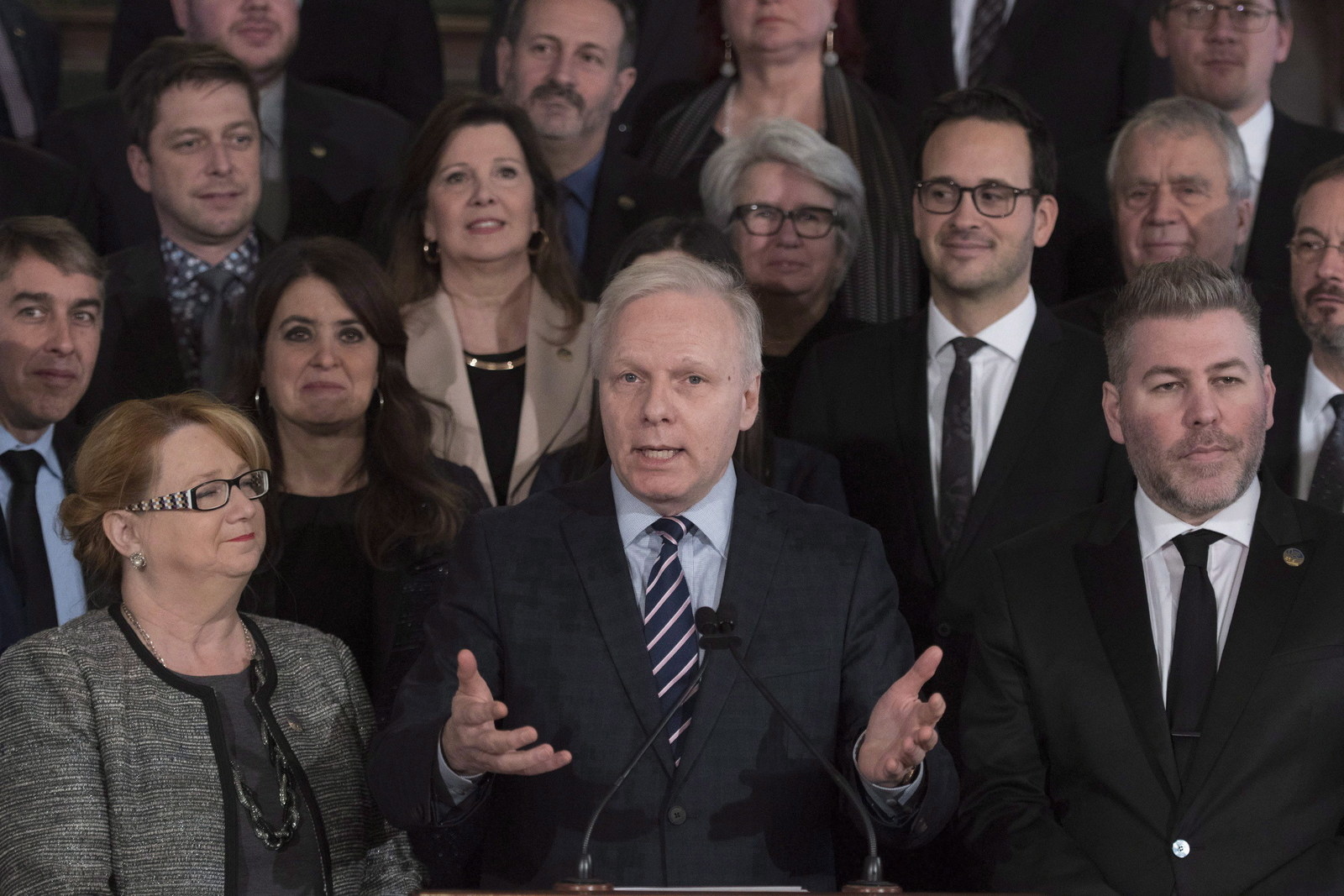
One of Canada’s largest Muslim association is calling on Ottawa to proclaim a national day against Islamophobia, set to coincide with the one-year anniversary of a mass shooting that killed six worshippers in a Quebec City mosque.
Supported by an array of Muslim groups countrywide, the National Council of Canadian Muslims says the declaration needs to be made to address a growing anti-Muslim sentiment.
“The ongoing impact being felt within the Quebec Muslim community and more broadly, Canadian Muslim communities, one year after the attack speaks to the urgent need for our elected leaders to stand firmly against Islamophobia and the agents of bigotry,” the group’s executive director, Ihsaan Gardee, said in a statement.
Justin Trudeau’s government has stayed mum on the proposal, which was originally put forward last February but repeated this month, while political parties in Quebec have come out wholesale against the idea.

In a statement to BuzzFeed News, Trudeau’s office refused to say whether they’ll declare Jan. 29 as the National Day of Remembrance and Action on Islamophobia, as the council has requested, except to say they have “received and noted” the group’s request.
Staffers for the prime minister and Heritage Minister Mélanie Joly ignored questions from BuzzFeed News, instead pointing back to the government’s statement. A spokesperson wouldn't answer directly when asked if that response had been conveyed to the Muslim organization.
The opposition Conservative Party, which has generally opposed the use of the word Islamophobia, introduced a motion in November declaring the 29th as the National Day of Solidarity with Victims of Anti-Religious Bigotry and Violence. The text of the declaration recognizes the attack on the Quebec City mosque, as well as other attacks targeting people of faith. A spokesperson for leader Andrew Scheer pointed to that initiative when asked about the National Council of Canadian Muslims proposal.
A spokesperson for NDP leader Jagmeet Singh told BuzzFeed News that they would support declaring that day on the 29th.
In Quebec, meanwhile, things are a bit more clear.
In an email statement to Le Soleil, the Coalition Avenir Québec — a centre-right party that is currently sitting atop the polls, and which seems best placed to unseat the governing Liberals — dismissed the idea.
“We believe that the 29th of January should be consecrated by commemorating the memory of the victims of this terrible tragedy,” the statement reads. “This intolerable action was that of a single person, and not of an entire society. Quebecers are open and accepting, they are not Islamophobes.”
The Parti Quebecois, the pro-sovereignty third-place party, echoed that sentiment, indicating their support for a day to remember the victims but said that the term Islamophobia has proved too controversial to entertain.

The governing Quebec Liberal Party has said it remains open to the idea, but has not decided one way or the other.
The conversation about enshrining the day against Islamophobia began after the Muslim organization sent an open letter to Prime Minister Justin Trudeau, asking that he proclaim the anniversary on that date in order to “collectively remember the victims of the attack and to enhance public education about the perils of hate, bigotry and Islamophobia.”

The council says the Muslim community in Canada is “still reeling from the devastating terrorist attack” that occurred last January, when, prosecutors allege, Alexandre Bissonnette walked into the city’s grand mosque and opened fire, injuring 25 and killing six.
Since then, there has been increased focus on violence and harassment targeting Muslims. Last March, MP Iqra Khalid brought forward a motion calling on the government to study Islamophobia, and religious harassment and hate crimes in general, and to improve statistics gathering on the issue. The motion was supported by an array of faith and human rights groups, and a version of the bill passed unanimously through the legislative assembly of Ontario.
There was, however, opposition to the motion — much of it based on misunderstandings of what the motion would do and, in some cases, conspiracy theories — led to protests across the country. When it came to a vote, M-103 passed by a vote of 201 to 91. The Conservative Party and Bloc Quebecois both voted against the bill, with the exception of two moderate Conservatives.
